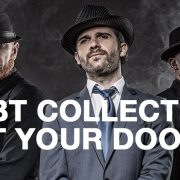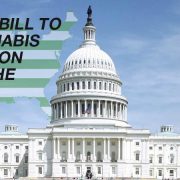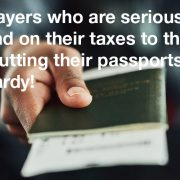IRS Issues Additional Guidance On Tax Treatment And Reporting Obligations For Crypto Currency
Since 2014 the only guidance issued by IRS on the taxation and reporting of crypto currency was Notice 2014-21. Expanding on this guidance, the IRS issued additional detailed guidance to help taxpayers better understand their reporting obligations for specific transactions involving virtual currency. The new guidance includes Revenue Ruling 2019-24 and frequently asked questions (FAQs).
In Notice 2014-21, the IRS applied general principles of tax law to determine that virtual currency is property for federal tax purposes. The Notice explained, in the form of 16 FAQs, the application of general tax principles to the most common transactions involving virtual currency.
The new revenue ruling addresses common questions by taxpayers and tax practitioners regarding the tax treatment of a cryptocurrency hard fork. In addition, a set of FAQs address virtual currency transactions for those who hold virtual currency as a capital asset.
Taxation Of Cryptocurrency
Here are the basic tax rules followed by IRS on specific crypto currency transactions:
- Trading crypto currencies produces capital gains or losses, with the latter being able to offset gains and reduce tax.
- Exchanging one crypto currency for another — for example, using Ethereum to purchase an altcoin — creates a taxable event. The token is treated as being sold, thus generating capital gains or losses.
- Receiving payments in crypto currency in exchange for products or services or as salary is treated as ordinary income at the fair market value of the coin at the time of receipt.
- Spending crypto currency is a tax event and may generate capital gains or losses, which can be short-term or long-term. For example, say you bought one coin for $500. If that coin was then worth $700 and you bought a $700 gift card, there is a $200 taxable gain. Depending on the holding period, it could be a short- or long-term capital gain subject to different rates.
- Converting a crypto currency to U.S. dollars or another currency at a gain is a taxable event, as it is treated as being sold, thus generating capital gains.
- Air drops are considered ordinary income on the day of the air drop. That value will become the basis of the coin. When it’s sold, exchanged, etc., there will be a capital gain.
- Mining crypto currency is considered ordinary income equal to the fair market value of the coin the day it was successfully mined.
- Initial coin offerings including certain forks do not fall under the IRS’s tax-free treatment for raising capital. Thus, they produce ordinary income to individuals and businesses alike provided that the taxpayer receives units of new cryptocurrency.
IRS Enforcement Action
The IRS is aware that some taxpayers with virtual currency transactions may have failed to report income and pay the resulting tax or did not report their transactions properly. The IRS is actively addressing potential non-compliance in this area by starting audits and even criminal investigations.
The IRS is using three types of notices to send to more than 10,000 taxpayers by the end of August 2019 – notices 6173, 6174 or 6174-A. All three notices indicate the IRS has information that the taxpayer receiving the notice currently has or has had virtual currency. However, it is Letter 6173 that is most serious as it requires a signature from the recipient under perjury that they are compliant with the U.S. tax code or requiring taxpayers to respond to the IRS and either file delinquent returns for tax years 2013 through 2017 or amend previously filed returns and include the applicable forms or schedules reporting cryptocurrency transactions. If you receive a Letter 6173, it should be a virtual certainty that you will be selected for examination.
If you receive Letter 6173, you should consult with a tax attorney as the submission of a statement signed under penalties of perjury that is false can result in serious consequences including criminal prosecution.
Given the limited guidance by IRS, there are still tax positions that can be advocated or structured so that taxpayers dealing with crypto currency can defer gains and minimize taxes. That is why it is essential you seek qualified tax counsel.
Penalties For Filing A False Income Tax Return Or Under-reporting Income
Failure to report all the money you make is a main reason folks end up facing an IRS auditor. Carelessness on your tax return might get you whacked with a 20% penalty. But that’s nothing compared to the 75% civil penalty for willful tax fraud and possibly facing criminal charges of tax evasion that if convicted could land you in jail.
Criminal Fraud – The law defines that any person who willfully attempts in any manner to evade or defeat any tax under the Internal Revenue Code or the payment thereof is, in addition to other penalties provided by law, guilty of a felony and, upon conviction thereof, can be fined not more than $100,000 ($500,000 in the case of a corporation), or imprisoned not more than five years, or both, together with the costs of prosecution (Code Sec. 7201).
The term “willfully” has been interpreted to require a specific intent to violate the law (U.S. v. Pomponio, 429 U.S. 10 (1976)). The term “willfulness” is defined as the voluntary, intentional violation of a known legal duty (Cheek v. U.S., 498 U.S. 192 (1991)).
And even if the IRS is not looking to put you in jail, they will be looking to hit you with a big tax bill with hefty penalties.
Civil Fraud – Normally the IRS will impose a negligence penalty of 20% of the underpayment of tax (Code Sec. 6662(b)(1) and 6662(b)(2)) but violations of the Internal Revenue Code with the intent to evade income taxes may result in a civil fraud penalty. In lieu of the 20% negligence penalty, the civil fraud penalty is 75% of the underpayment of tax (Code Sec. 6663). The imposition of the Civil Fraud Penalty essentially doubles your liability to the IRS!
What Should You Do?
The IRS has not yet announced a specific tax amnesty for people who failed to report their gains and income from Bitcoin and other virtual currencies but under the existing Voluntary Disclosure Program, non-compliant taxpayers can come forward to avoid criminal prosecution and negotiate lower penalties.
With only several hundred people reporting their crypto gains each year since Bitcoin’s launch, the IRS suspects that many crypto users have been evading taxes by not reporting crypto transactions on their tax returns.
And now that like–exchange treatment is prohibited on non-real estate transactions that occur after 2017, now is the ideal time to be proactive and come forward with voluntary disclosure to lock in your deferred gains through 2017, eliminate your risk for criminal prosecution, and minimize your civil penalties. Don’t delay because once the IRS has targeted you for investigation – even if it is a routine random audit – it will be too late voluntarily come forward. Let a bitcoin tax attorney at the Law Offices Of Jeffrey B. Kahn, P.C. located in Orange County (Irvine), San Francisco Bay Area (including San Jose and Walnut Creek) and offices elsewhere in California get you qualified into a voluntary disclosure program to avoid criminal prosecution, seek abatement of penalties, and minimize your tax liability. Additionally, if you are involved in cannabis, check out what a cannabis tax attorney can do for you.











 Follow
Follow Follow
Follow